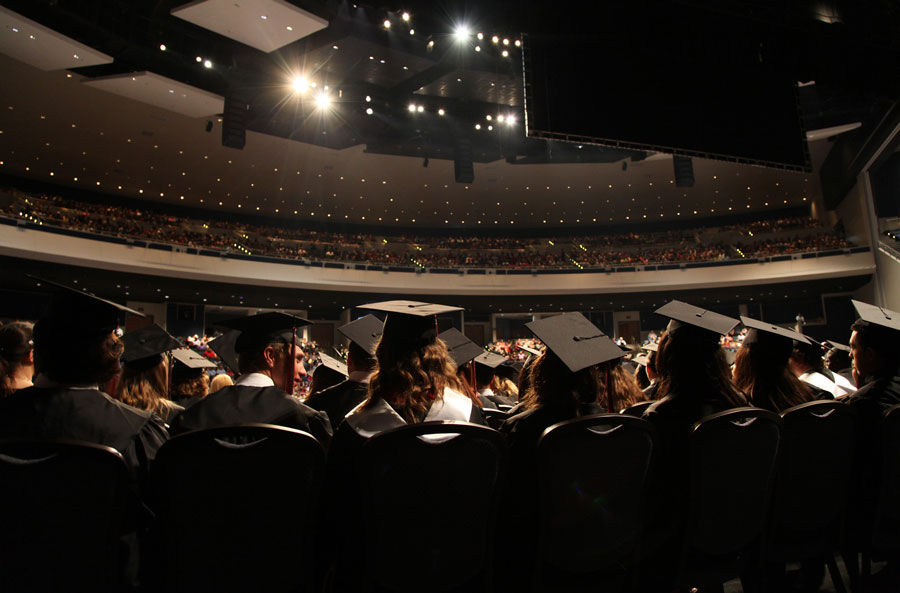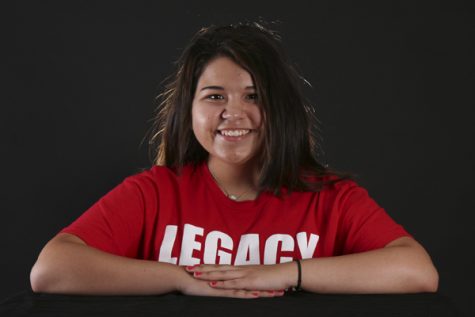As junior Skylar Fegley walks through Legacy’s doors on her first day, she can already feel how different this year was going to be. She smiles to herself, thinking of all the memories she’s made. From the friday night lights spent in the stadium stands to the days in spent in class surrounded by her friends, she can’t help but feel bittersweet. This year was going to be her last as a high school student.
Alongside thousands of students nationwide, Fegley decided to take initiative and graduate early. For many, senior year can be about a time to celebrate and enjoy every last bit of high school, but for Fegley, savoring these moments are overruled by extra amounts of work and pressure in order for her to meet the requirements of an early graduate.
“It wasn’t an easy decision to make. I always knew that this was something I wanted to do, but actually making a plan was surreal.” Fegley said. “I talked about it with mom and one of her friends. I always knew that this was something I wanted to do. It was something we all talked about a lot, but it was never seriously considered until the summer of my freshman year.”
Graduating early requires a lot of cooperation between the student and counselor. Before even considering the option of graduating early, counselors look at the plan the student has for their future and their level of maturity to ensure that they are ready for a college atmosphere. If deemed qualified to skip a year of high school, counselors assign extra classes in order to meet one of Texas’ graduation requirements. For Fegley, this meant sacrificing classes she loved, especially band, for a rigorous schedule with no extracurriculars.
“I’m more stressed than I have ever been,” Fegley said. “The pressure of finishing online courses, extra homework, and getting all my credits is taking a toll on me.”
Although graduating early gives students the opportunity to start your future earlier, it comes with several negative aspects. Besides the load of extra coursework early graduates have to handle, an extra amount of pressure is added on students. Fegley and other striving to graduate early often struggle finishing online courses and receiving credits needed to graduate. Students often make sacrifices socially to keep up with curriculum. With most of her time devoted to school, Fegley finds it difficult to distinguish social time and time for schoolwork.
“I have to study a lot and have twice as much homework than a normal senior has. [Taking] extra classes sacrifices my social life. It’s a very stressful process,” Fegley said. “Also, I don’t really know anybody [in my senior classes]. It’s hard.”
Early graduation from high school provides today’s students with more options. Students can take advantage of a variety of postsecondary and career offerings sooner. Students who choose to graduate early save money and get ahead of those who stay their senior year. Indiana, Minnesota, Utah, South Dakota and Idaho are some states that offer scholarships to students who graduate early.
By entering the workplace sooner, early graduates have more opportunities for jobs. Being able to apply for jobs in January or February means you may be applying for jobs in a less competitive market than applying in May and June. Though Fegley has no experience in the workplace, she has decided to apply to next fall for jobs to get a head start on her work experience.
Compared to regular graduates, early graduates show to be more socially mature and academically well prepared than their older college peers. They often receive financial incentives from universities as well. Despite the number of beneficial aspects of graduating early, Legacy counselor Ms. Angela Julius, believes students should stay the complete four years in order to fully experience what Legacy has to offer.
“I’m a traditionalist. I think that it’s best for a student to stay the extra year in high school because I think it’s worth it,” Ms. Julius said. “Legacy is a great school and provides a positive environment for students to choose their path for their future. I think this is the best option for students, but I do understand that students have their reasons for this.”
Early graduates must be academically ready for college admission and must have a plan to reach their goals so they will be prepared for college. The student must be ready for the independent college atmosphere, college rigor, pressure, older peers and moving away from home.
“It’s extremely intimidating,” Fegely said. “I know I’m going to stand out, but it’s a different learning experience so it should be fun.”
As for the future, Fegley plans to stay home and attend the University of Texas at Arlington to receive her basics. Once she accomplishes this, she plans to apply to the University of Texas at Austin in hopes of doing something in the field of science.
“It’s been really fun, but it’s high school,” Fegley said. “I’m ready to leave and see what college has to offer me.”






